Just before the spooky night of Hallowe’en of October 31 when little children dressed as goblins and ghosts and witches go door to door in Canada seeking candy, a much, much more fearful prospect had cast its shadow over Canada. The evening of the 30th saw Canadians across the country anxiously glued to TV sets for hours of nail-biting tension.
The future of the country was at stake and it was centred in the mostly French-speaking province of Quebec.
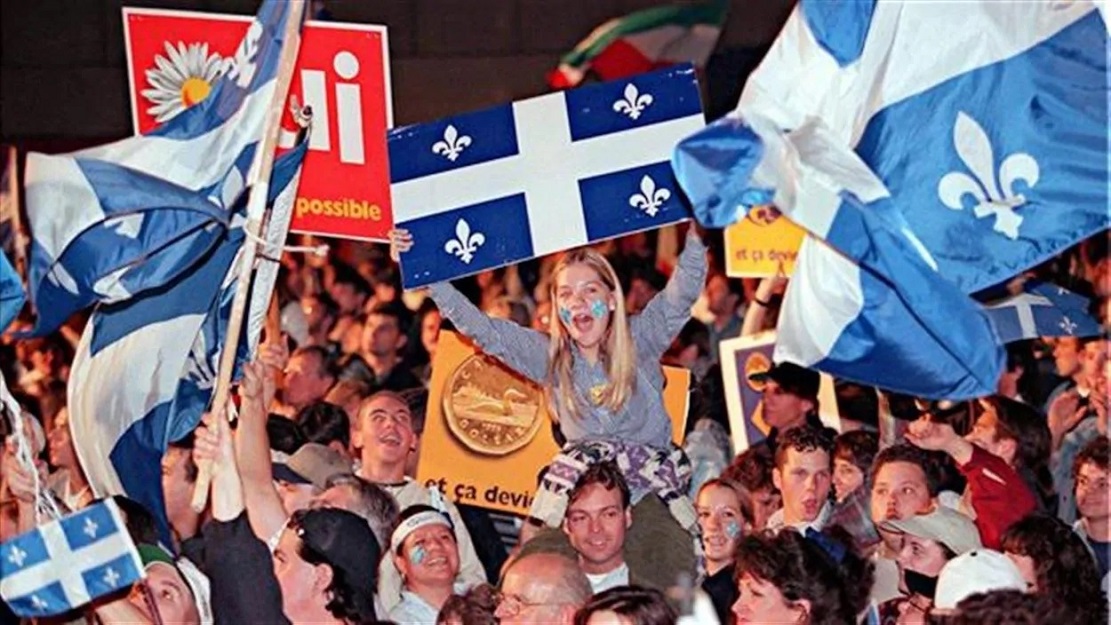
Emotions ran high on both sides as voting day approached, with each side holding rallies of support, with the idea of a French speaking ‘country’ being especially popular among Francophone youth ( via Radio-Canada)
The separatist government in power had organized a province-wide referendum , the second such effort by the Parti Quebecois and various nationalist groups who were seeking a mandate to declare the province as a separate independent country.
A previous effort in 1980 had failed to secure a majority vote for their cause and the PQ maintained that if it was came to power again it would hold another referendum. So it was that when the PQ was elected in 1994, then leader Jacques Parizeau, began his campaign for another referendum to take place the following year.
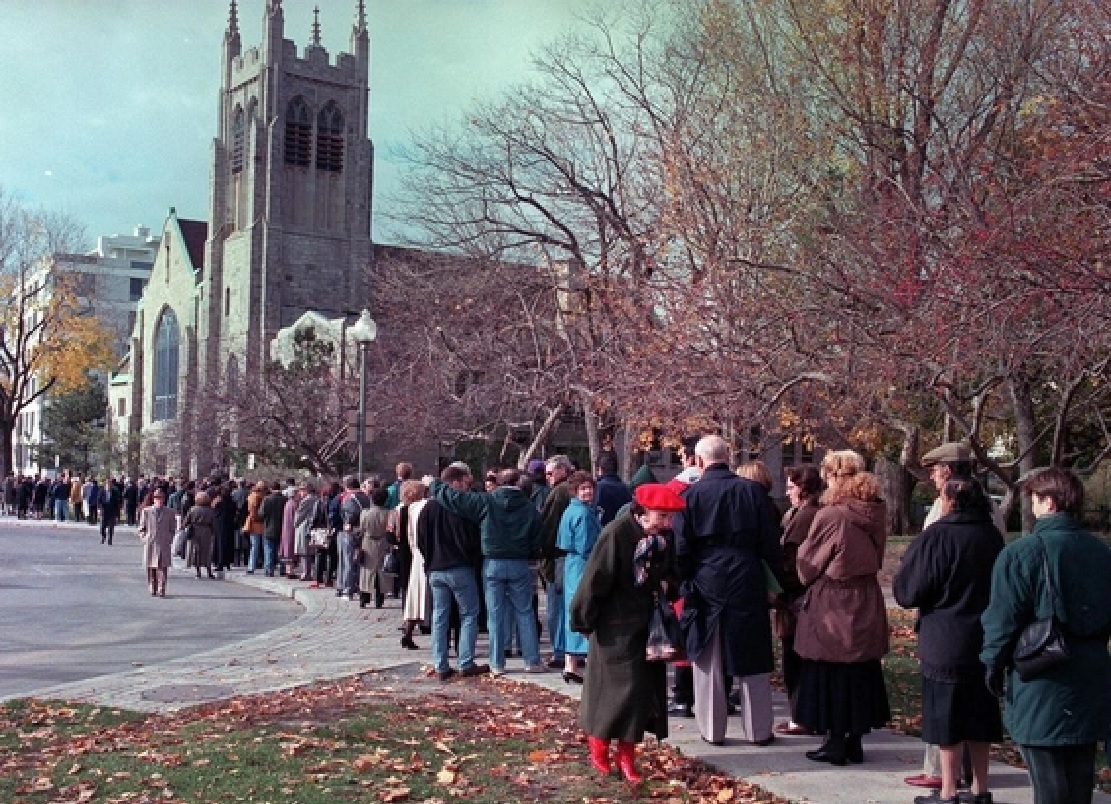
A long line of voters at a polling station in the mostly Anglophone borough of Westmount. There was record turnout across the province, but questions have always lingered about the higher level of rejected ballots in certain ridings. ( Robert Galbraith -Canadian Press)
Quebeckers for ‘sovereignty’ would vote ‘yes’ (Oui) for separation, while ‘federalists’ would vote ‘no’ (Non) to stay within the Canadian federation.
Tension had been only slowly building in the months and weeks leading to the vote as at first the ‘no’ side had shown a comfortable lead in various surveys. However as the vote day came closer, the tension increased enormously as polls alternately put the yes or no side ahead.
The uncertainty of Canada’s future as a country had serious implications as Canadian banks all but shut down Canada’s $30-billion-a-day foreign exchange market as business dried up ahead of the referendum. This was cited as an indication of one the severe financial consequences facing both Quebec and the “rest of Canada” in the event of a separatist win.
Voting day came and with it almost every eligible voter in the province resulting in a record turnout of over 93 per cent.
As the 1980 vote had been relatively close, Quebec Premier Jacques Parizeau, and others of the ‘oui’ side insisted that a vote of “50% + 1” would constitute a majority.
As the ballots were counted during the evening, the lead switched back and forth, it was neck and neck, as everyone was on the edge of their seats. Late in the evening as most ballots had been counted, the ‘Oui’ side was slightly ahead, and they began to rejoice. Then at almost the last minute with all results finally coming in, the federalist ‘Non’ side squeaked ahead by the slimmest of margins, just over half a percent at 50.6 per cent to 49.4 per cent.
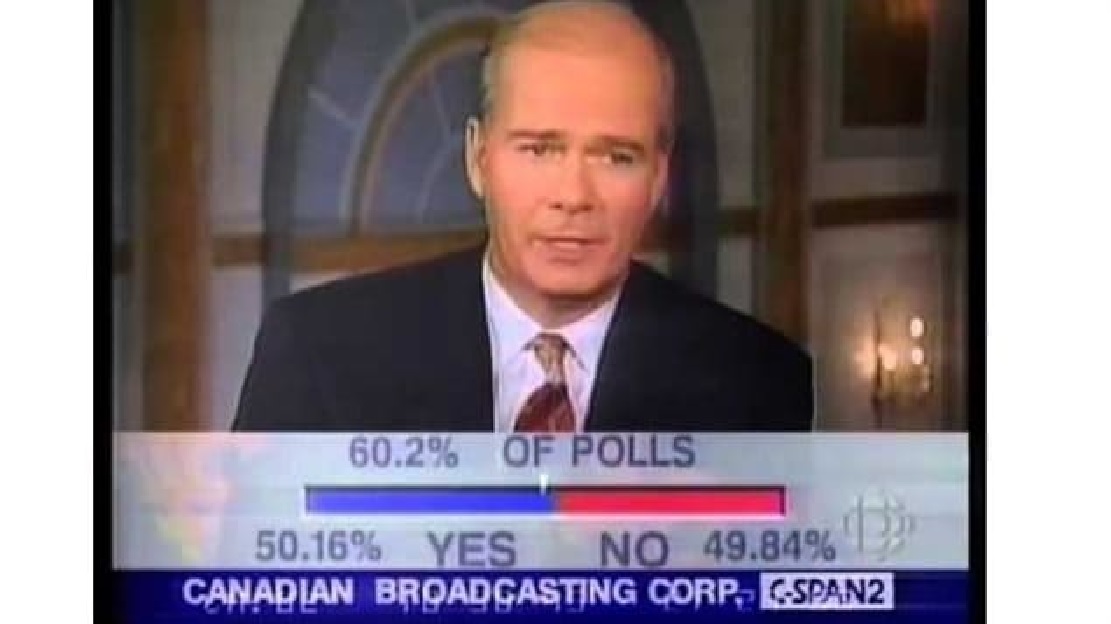
A rather worried looking CBC national news anchor Peter Mansbridge during coverage of the referendum vote showing the extremely narrow margin for and against separations which went back and forth during counting. Nearing the end of the night, the federalist side was just squeaking ahead and would end up with the slimmest of wins. ( CBC- C-span)
Thus Canada had survived intact, but only by the slimmest of margins.
For his part, PQ Premier Parizeau was so assured of victory, that he had not prepared two speeches as politicians almost always do to cover a win, or a loss. The result was his infamous off-the-cuff tirade
As a huge crowd of his anxious supporters waited in the venue, he finally came out to address them.
Visibly embittered, he uttered a comment that has haunted the separatist movement ever since. In his ad lib speech he said the loss should be blamed on “money and the ethnic vote”.
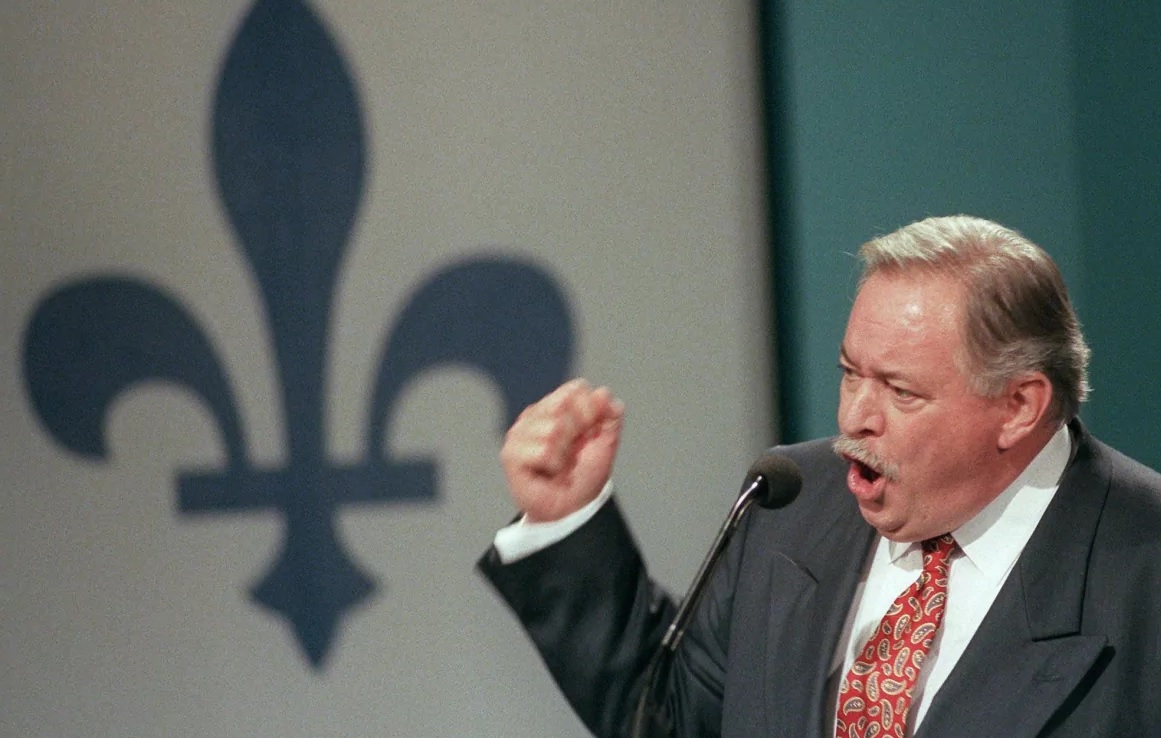
A bitter Jacques Parizeau, in an unprepared speech blamed the loss on “money and the ethnic vote” (Ryan Remiorz-CP)
The separatist movement ever since has blamed their loss on cheating by the “non” side and unfair financial interference for example in terms of the unity rally.
Federalists of the “non” side point to the rejection by PQ scrutineers of over 86,000 ballots cast in mainly Anglophone ridings. Thomas Mulcair of the provincial Liberal Party (later leader of the federal NDP) had called for an inquiry into the organized rejection of No votes in his riding and others during the 1995 referendum, calling the vote rejection. “ an orchestrated, manipulated electoral fraud”.
A multi-year campaign by English rights groups to have those ballots re-examined was fought against by “oui” forces, and eventually a judge ruled the ballots should be destroyed, taking with them whatever secrets they may have held.
In 2014, respected journalist Chantal Hebert, and political commentator Jean Lapierre, released a best-selling book called “The Morning After”. In it they interviewed all the main actors and other politicians from across the country who had been involved in the referendum or in some position of power or influence elsewhere in the country.
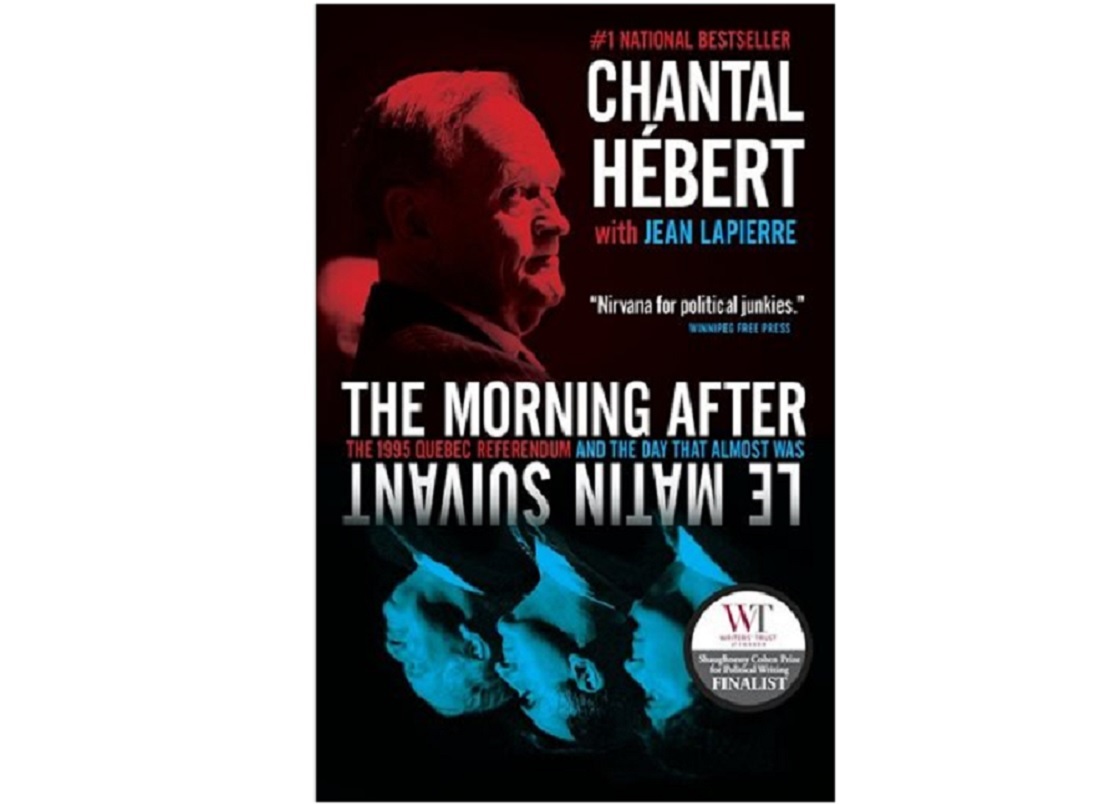
A 2014 book of interviews with main players and other politicians at the time reveals a shocking lapse of planning on all sides in the event of a “yes” vote, and of a bitterly contested future. (Penguin Random House)
The book reveals the shocking information that neither side had a defined plan as to what would happen if the ‘yes’ side had won, but that a potentially long and very bitter political dispute would occur, not only over very serious financial issues, but even the borders of the new state, domestic accords between the two ‘new’ political entities’, along with renegotiations of international treaties, and Indigenous lands and aspirations.
Since that troubled time, the fortunes of the separatist movement in Quebec have grown and receded but have never disappeared, and in the past few years a new fledgling separatist movement in the west has sprung up, dissatisfied with treatment by the Liberal government. Taking a cue from Britain’s “Brexit”, the movement calls itself “Wexit” from ‘western exit’.
As many analysts have said , Canada is and continues to be “a work in progress”.
Additional information-sources
- Montreal Gazette: D Macpherson: Oct 23/20: In the 1995 referendum the Yes-side cheaters were smarter
- CTV: M.Gilmour: Oct 29/20: ‘Quebeckers don’t want this’: Legault fires back at PQ over referendum calls
- Montreal Gazette: Oct 30/19: History through our eyes, Oct 30.1995, money and the ethnic vote
- CTV: J Jedwab: Oct 20/20: OpEd: In the 1995 did the federalists pursue the right strategy?
- Canadian Encyclopedia: G Gall: Aug 21/13: Quebec Referendum 1995
- Canadian Press (CBC): G Valiante: oct 28/15: Quebec’s 1995 referendum far from last gasp for sovereignty hopes
- Globe and Mail: oct 29/15 OpEd: The wound of the 1995 referendum remains
- https://www.theglobeandmail.com/opinion/editorials/the-wound-of-the-1995-referendum-remains/article27031701/
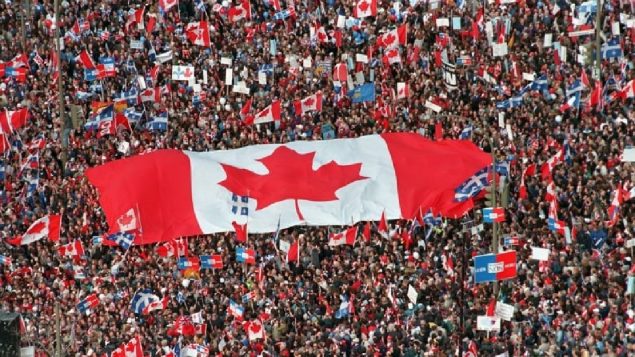






For reasons beyond our control, and for an undetermined period of time, our comment section is now closed. However, our social networks remain open to your contributions.